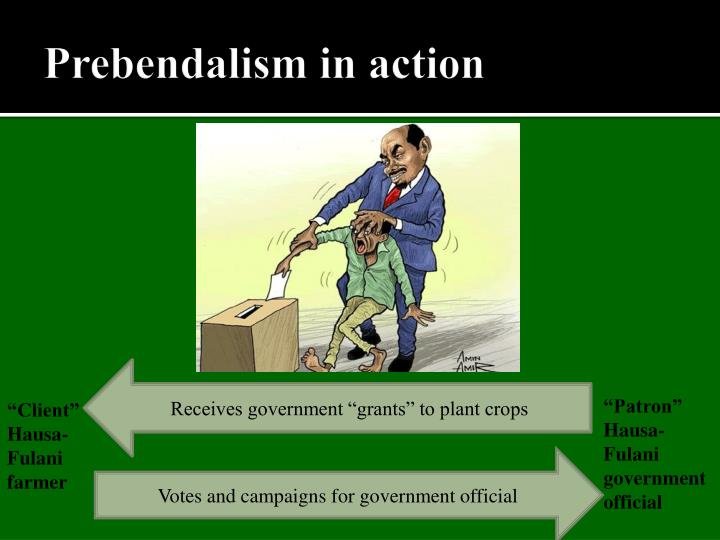Prebendalism refers to political systems in which elected officials and government workers perceive state offices and revenues as personal entitlements, which they then use to benefit supporters, co-religionists, and members of their ethnic group.
Origins of the Term
- The Catholic Encyclopedia defines a prebend as the "right of a member of a chapter to his share in the revenues of a cathedral."
- Max Weber first applied the term prebend in a broader political and sociological context:
- He used it to describe India and China in the early Middle Ages in:
- The Religion of China (1915)
- The Religion of India (1916)
- He used it to describe India and China in the early Middle Ages in:
Weber’s Description
- In the Carolingian Empire, power fragmentation created a system of vassalage and rural subsistence economy, leading to the rise of a feudal nobility.
- In India and the Orient:
- Seigniories developed from tax farming and military/tax prebends of a bureaucratic patrimonial state.
- Unlike European fiefs, oriental prebends did not lead to feudalization but rather “prebendalization”.
- In early 18th-century India, state-derived rights over capital were often patron-client based and volatile, prompting efforts to convert them into hereditary entitlements.
Prebendalism in Nigeria
- Richard A. Joseph, Director of The Program of African Studies at Northwestern University, introduced the term in Nigerian political studies, describing it as a form of:
- Patron-clientelism
- Neopatrimonialism
Joseph’s Definition (1996)
“State offices are regarded as prebends that can be appropriated by officeholders, who use them to generate material benefits for themselves and their constituents and kin groups.”
Impact on Nigerian Politics
- Encourages ethnic and identity-based politics
- Fuels systemic corruption and patronage
- Contributes to Nigeria’s low rankings on Transparency International’s Corruption Perceptions Index
Examples
- Investigations into 31 of 36 governors for corruption
- Media commentary highlighting prebendal practices, e.g.:
- Victor E. Dike, Daily Champion (Lagos) – “Nigeria: Governance and Nigeria's Ailing Economy”
- Defenses of prebendalism as a path to justice and equitable resource allocation, e.g.:
- Oliver O. Mbamara, Africa Events – “In Defense of Nigeria: Amidst the Feasting of Critics”
See Also
- Clientelism
- Neopatrimonialism
- Patronage in Ancient Rome
References
- Joseph, Richard A. Democracy and Prebendal Politics in Nigeria.
- Max Weber. The Religion of China (1915).
- Max Weber. The Religion of India (1916).
- Transparency International. Corruption Perceptions Index.
